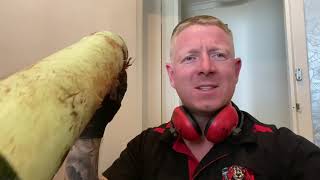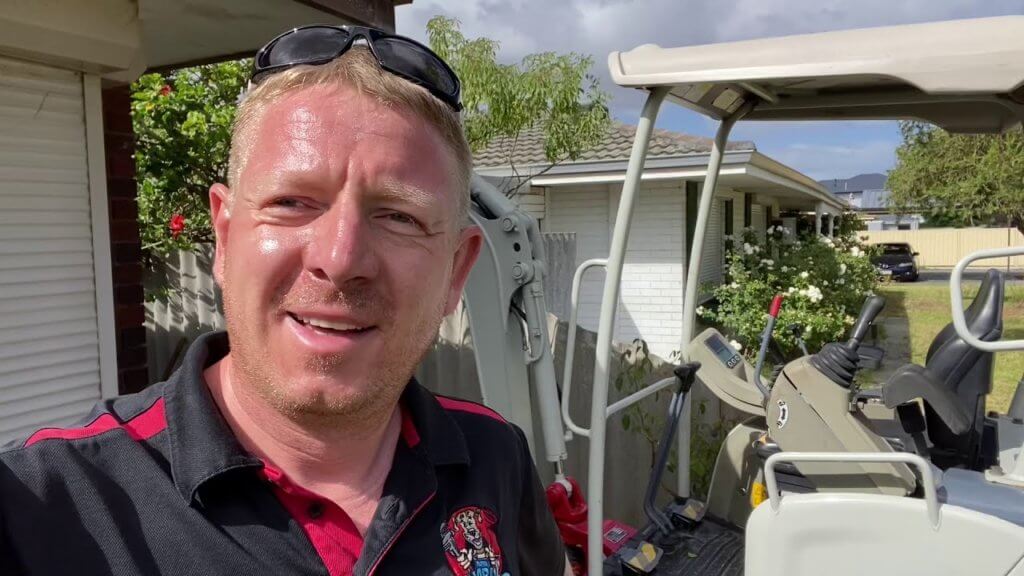- Tree roots can cause all sorts of havoc with blocked drains and drain repairs
- Simply jetting away and clearing the tree roots is not always the best solution. In some circumstances it may provide a temporary fix but may end up costing more in the long run with the same recurring problem.
- At Plumbdog we look for long term solutions which ultimately saves our customers time and money
- Check out more of our VLOGs & don’t forget to like and subscribe to our YouTube channel!
The Job: Blocked Toilet
In today’s video, our Plumbdog Richard is on a property in Huntingdale, Western Australia. Today’s job is to fix a clogged toilet, which perpetually keeps blocking up. The toilet installed in the bathroom seems to be pretty old, typical for these older toilets, the waste goes from the bathroom in an old earthenware pipe.
The toilet clogs are that the tree roots have penetrated underneath the pipe, where it forms a connection to the ceramic toilet pan.
The cleaning of the roots using a high-pressure jet will only be partially possible because if it hits the ceramic connector point on the pan, it will smash. Our customer was presented the customer with two possible options to deal with the situation.
Option 1: Remove the Toilet Pan
The first way is to remove the toilet pan and put it through a high-pressure water jet and then into the drain. The high-pressure water jet will ensure to clean the roots out. But the problem that this step comes with is that the pan will have to be replaced on being removed, making this step a temporary fix. The other issue with this step is that the roots will only be temporarily removed, as they will grow back. Cutting the root is like giving a haircut, which means it needs to be periodically done. Every time the roots grow back, the pan will have to be replaced, and also the drains will have to be cleared, making this process not very feasible.
Option 2: A Better Option
The next option suggested by Richard, which is not only more practical but permanent, is to leave the root-infested pipe in the ground and instead install a new ‘P- trap’ suite, which will make for a gateway for the waste to go through the wall instead of the floor.
In simple terms, this will serve as installing a brand new PVC pipe, which will be connected to the old earthenware pipe externally. On getting customer approval, Richard starts digging and gets to work.
Richard puts his gear inside the pipe, and its output being visible on the CCTV shows us how the roots are still inside the pipe. Richard now removes the toilet pan using a jackhammer from the concrete, and in the process, it breaks from the point where the ceramic joins the airway. Richard gets rid of the roots inside by removing the pan, and also gets rid of the base and replace it with a new one.
While drilling and taking out the old PVC, Richard finds out that this was realigned before, which means that the roots have been here for quite some time. But realigning was not the permanent fix, and therefore the process of installing the P- trap’ suite is so important.
To help the future plumbing jobs, Richard also installs an inspection point which they can directly put the drain gear inside and complete the drain cleaning. In the end, Richard successfully replaces the new toilet suite, installs the P-Strap suite, and what he is left with is the root infested earthenware pipes.






